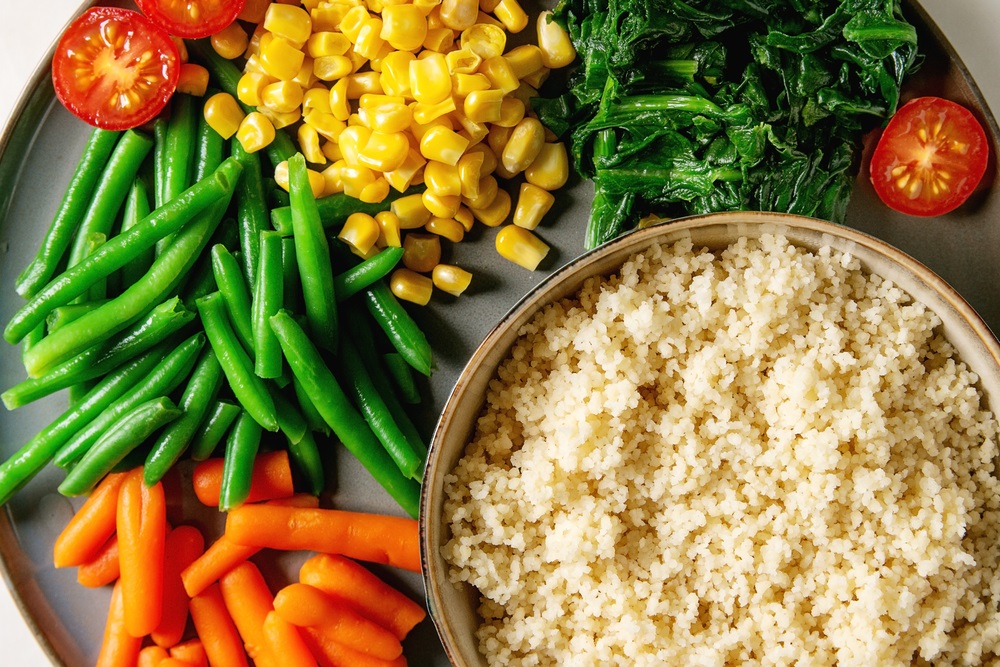- Home
- Blog
- Healthy Eating for Wellness
- Bulgur or couscous? What’s the difference?
Bulgur or couscous? What’s the difference?
Written by Catherine Saxelby on Wednesday, 08 February 2023.

One is a refined wheat product. One is wholegrain. Both cook quickly and easily. But which is healthier to eat?
Read on for more …
A couple of definitions
Bulgur wheat (also called bulghur, burghul and bourghul) is made by parboiling whole wheat berries, then parching (to dry them out) and cracking them. This process removes some of the outer layers of bran and cracks the grains – hence its name of ‘cracked wheat’.
The germ and most of the bran are retained, making it a quick-cooking, wholegrain product useful in many dishes. As well as tabbouleh (which is where you’d recognise it), you can also eat bulgur as a breakfast cereal, or use it in pilaf or as a stuffing.
Couscous is traditionally made from durum wheat semolina. The name refers to both the tiny balls you buy and the traditional dish of North African cuisine, in which couscous is steamed and served with a broth of meat, chicken or fish, and vegetables. You can add couscous to salads or serve it as a side dish.
While couscous has nutrition benefits, it may not be the best carb choice for everyone.

Pearl couscous (Israeli couscous) is about the size of peppercorns and takes longer to cook. It tends to have a nuttier flavour and chewier texture. Brands include Blu Couscous (400 g packet) or San Remo (300 g packet).
Both types of couscous are easy to prepare. If you want something that is fluffy and not sludgy, try the Western version sold in supermarkets. It has been pre-steamed and dried. Simply add boiling water or broth and fluff with a fork.
The trouble with couscous
Couscous is not a whole grain, which is why nutritionists don’t recommend it.

Bulgur and wholewheat couscous (but not regular couscous) are nutritious wholegrain foods packed with those vital B vitamins, protein, and minerals including magnesium and phosphorus.
But if you were to buy a fine-grain burghul (to combine with minced meat or ground beef), you would have the best of both worlds – a wholegrain wheat product PLUS something that cooks quickly.
The bottom line
Look for wholegrain couscous or use burghul for your tabbouleh or kofta mince. Note that because both are made from wheat, they contain gluten. This makes them off limits if you have a gluten allergy or intolerance.
Jemma O'Hanlon
The Good Stuff
The Boring Stuff
© 2025 Foodwatch Australia. All rights reserved
Website by Joomstore eCommerce





